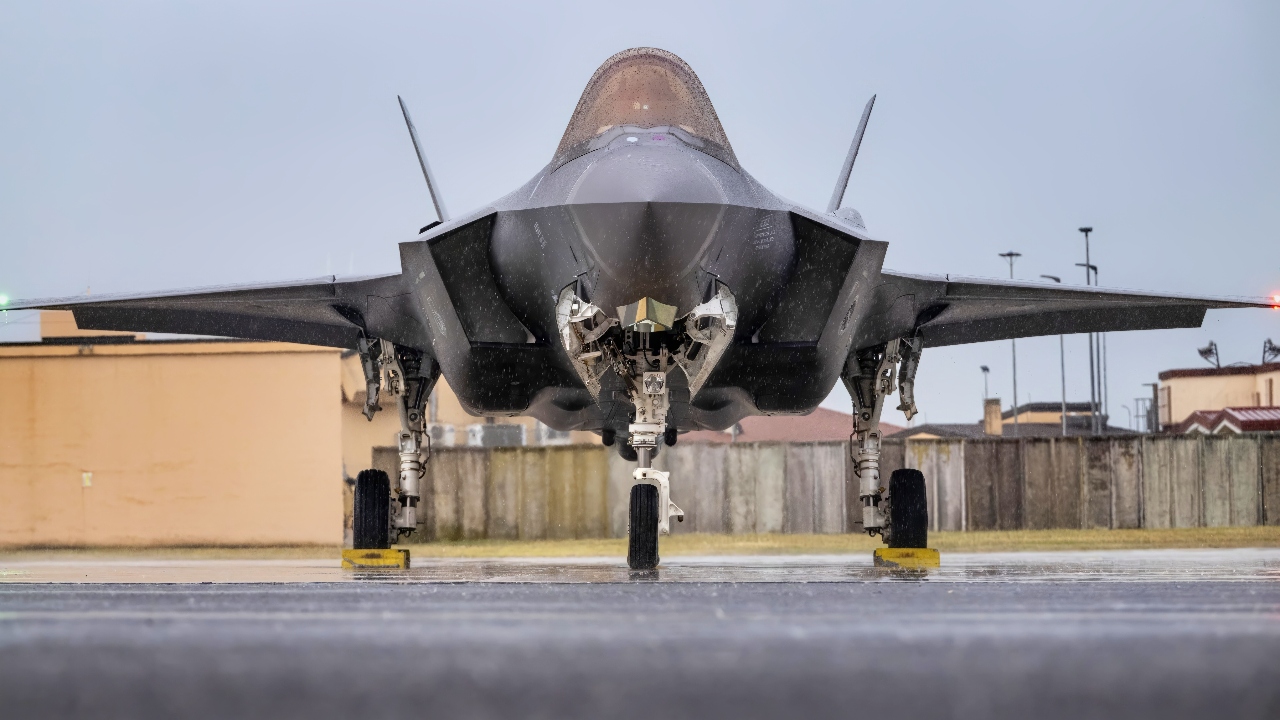Key Points and Summary – India has rejected offers to purchase both the American F-35 and the Russian Su-57, signaling a major pivot towards strategic autonomy.
-New Delhi’s decision is driven by a long-term goal to develop its own indigenous fighter jets, like the AMCA and Tejas.
-The U.S. F-35 was turned down due to its high cost and restrictive terms.
-The Russian Su-57, which India was once a partner in developing, was rejected for its poor performance, unreliable engines, and inadequate stealth capabilities, reinforcing India’s commitment to building a self-reliant and modern air force.
India Rejects F-35 and Su-57 Purchases, Wants Indigenous Aircraft
India doesn’t want the United States F-35 or the Russian Su-57. Both fail to align with the Asian nation’s long-term strategic goal of developing its own indigenous fighter jets and achieving strategic autonomy.
The F-35 comes with significant restrictions and costs. At the same time, the Su-57′s performance did not meet India’s standards when it was initially involved in the project, plus it carries the risk of US sanctions due to India’s S-400 system.
The Indian government has informed the United States that it is not interested in procuring the F-35 fighter, according to a recent report by Bloomberg.
India Not Interested in the F-35 Program
American officials stated, when speaking anonymously, that the Indian government appears unlikely to proceed with any significant new defense procurements from the United States, despite Washington having lobbied increasingly hard to press the country to increase defense imports.
“The [Indian] government is more interested in a partnership focused on jointly designing and manufacturing defense equipment domestically,” one official stated, with the US offering only minimal options for customization of the aircraft.
The US offered to sell the F-35 during Prime Minister Narendra Modi’s official visit to Washington in February 2025, where President Donald Trump reportedly pushed for expanded defense cooperation, including the sale of the fifth-generation stealth fighter aircraft.
India Withdrew From the Su-57 Program
While India did not reject the Su-57 itself, it withdrew from the joint Fifth Generation Fighter Aircraft (FGFA) program, citing the Su-57’s shortcomings.
These included a lack of essential fifth-generation capabilities like supercruise and inadequate low observability, unreliable engines, and problems with its radar.
India also demanded technology transfer and the installation of Indian-made AESA radars, which Russia was unwilling to provide fully, leading to India prioritizing its own indigenous defense programs like the AMCA.
India was involved in the Russian Su-57 project, lending cash to the program, which has been beset with issues from its inception.
However, New Delhi withdrew from the co-development deal in April 2018. According to Indian Air Force officials, the Su-57 was too expensive, poorly engineered, and powered by old and unreliable engines. Its reported lack of stealth also played a significant role.
The Indians’ complaints illustrated the reality between stealth-warplane design and the actual production of radar-evading jets. It’s one thing to sketch an advanced warplane on paper. It’s quite another to build one and get it to work.
China Mocks Su-57 At Air Show
At Airshow China 2024 in Zhuhai, Chinese social media users and media outlets criticized a Russian Su-57 fighter jet for its “stealth” design flaws, specifically visible panel lines and fasteners, which were contrasted unfavorably with China’s J-20 fighter.
The Su-57, a T-50 prototype, was on display to secure export orders. Still, its construction quality, particularly the incomplete closure of the weapon bay doors, led to negative comments suggesting the aircraft was not a truly stealthy design.
The Su-57, which the Kremlin has touted as the most advanced “fifth-generation stealth fighter” in service today, flopped in front of a very partisan Chinese audience, despite the two being “close allies.”
Aviation analysts and enthusiasts quickly found design flaws and other shortcomings, including an abundance of bolts and screws on the fuselage and misaligned sections.
“Lots of screws: A closer look at Russia’s fifth-generation Su-57 fighter jet at China’s Zhuhai Airshow,” reported open-source military news site Clash Report on X, echoing complaints seen on TikTok.
Another reason to withdraw from any Su-57 talks concerns Russia’s manufacturing, or lack thereof. Russia, due to a poor economy, a lack of qualified workers, and steep Western sanctions, has suffered a significant decline in its manufacturing capabilities. They only have a handful of Su-57s for their own use.
India Wants Fighters Built In India
Incorporating a “fifth-generation” aircraft into the India Air Force (IAF) plans – centered on the homegrown Advanced Medium Combat Aircraft (AMCA) and adding any foreign-made aircraft – would be challenging, especially without co-production rights.
Being developed by India’s Defense Research and Development Organization (DRDO), the AMCA is India’s own stealth fighter.
India’s planned fighter jet expansion is largely homegrown, with plans to acquire over 500 jets, mostly light combat aircraft.
According to the BBC, orders for 83 Tejas Mark 1A – an agile multirole homegrown fighter – are confirmed, with another 97 expected to be ordered shortly.
Meanwhile, the heavier, more advanced Mark 2 is in development. The homegrown stealth jet remains in development but won’t be expected for the next decade.
About the Author: Steve Balestrieri
Steve Balestrieri is a National Security Columnist. He served as a US Army Special Forces NCO and Warrant Officer. In addition to writing on defense, he covers the NFL for PatsFans.com and is a member of the Pro Football Writers of America (PFWA). His work was regularly featured in many military publications.
Military Affairs
The Air Force Has an F-47 Fighter Problem
The Aircraft Carrier Is No More
The Royal Navy’s Astute-Class Nuclear Attack Submarine Is Quiet as a Dolphin










